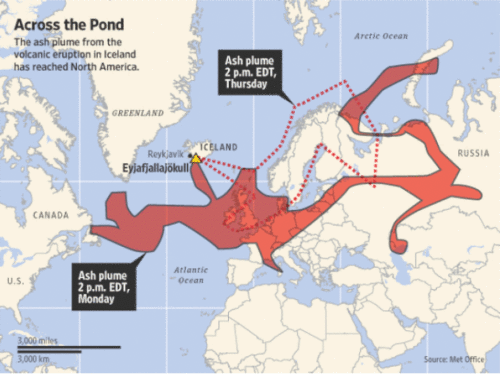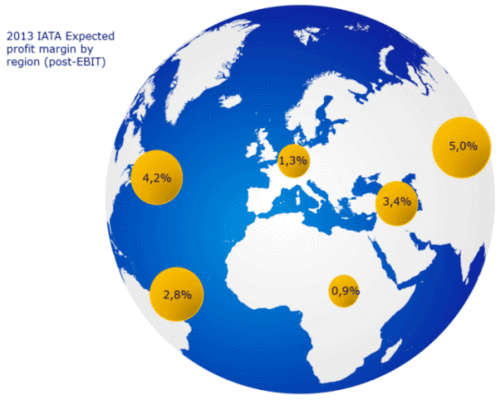May 2010: a volcano erupted in Iceland. In the space of just a week, more than 100,000 flights were cancelled, leaving airlines and airports in particular with major turnover losses and cost increases due to the shelter provided and financial compensation paid out to passengers, among other causes.

The International Air Transport Association (IATA) estimates airlines worldwide suffered a turnover loss of €1.3 billion, 70% of which was borne by European airlines.Figure 9: Distribution of the financial impact of the eruption of the Eyjafjallajökull volcano. Source: IATA The credit crisis and various international events have put significant pressure on profit margins (especially those of the European aviation industry), as shown in Figure 10.

In order to minimise the effects of the adverse economic conditions, organisations in the air transport sector have focused strongly on such measures as capacity reductions, liquidity and cost management and the strategic rethinking of investments that have also affected the Dutch aviation industry. The vast majority of aviation organisations have had a recruitment freeze in place for many years and some maintain it to this day.